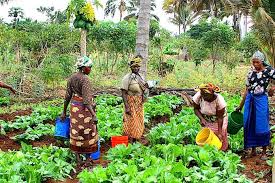Stakeholders seek smaller tractors, other agricultural support for women farmers
Stakeholders have called for increased empowerment for women in agriculture to enhance food security in Nigeria. At a one-day summit on ‘Women for Food Security’ held in Abuja, various speakers emphasised the importance of improving access to farm mechanisation for women farmers. Engr. Patricia Stan-Dioka, Chief Executive Officer of Mela Chiyoma Pat Ltd, highlighted the […]

wia
Stakeholders have called for increased empowerment for women in agriculture to enhance food security in Nigeria. At a one-day summit on ‘Women for Food Security’ held in Abuja, various speakers emphasised the importance of improving access to farm mechanisation for women farmers.
Engr. Patricia Stan-Dioka, Chief Executive Officer of Mela Chiyoma Pat Ltd, highlighted the numerous challenges women in agriculture face.
“As women, we play a vital role in ensuring the well-being of our families and communities. Yet, we often face unique challenges in accessing resources, knowledge, and opportunities,” she stated.
Drawing from successful agricultural projects in other countries, Stan-Dioka pointed to India as a model. “In India, extensive mechanisation and the adoption of sustainable agricultural practices for rural farmers have led to substantial improvements in food production and farmers’ livelihoods,” she added.
Sunish Shah, an Indian investor with Captain Agri Machinery EXIM LLP, stressed the need for machinery tailored to smallholder farmers to boost food security in Nigeria.
“Given the population and urbanisation in Nigeria, there is significant potential for small tractors that are suitable for marginal and small farmers,” Shah said.
Shah also mentioned that if Nigeria’s demand for agricultural machinery grows, his company might consider establishing an assembly plant in the country.
Alhaji Muhammad Sani Garba, Executive Chairman of Business Visa and Training Ltd, echoed the potential benefits of learning from India’s experience.
“India faced a situation similar to what we are experiencing now, and they have successfully excelled. We can adopt their mechanisation methods, particularly the small equipment that women and small farmers can easily operate,” he said.
